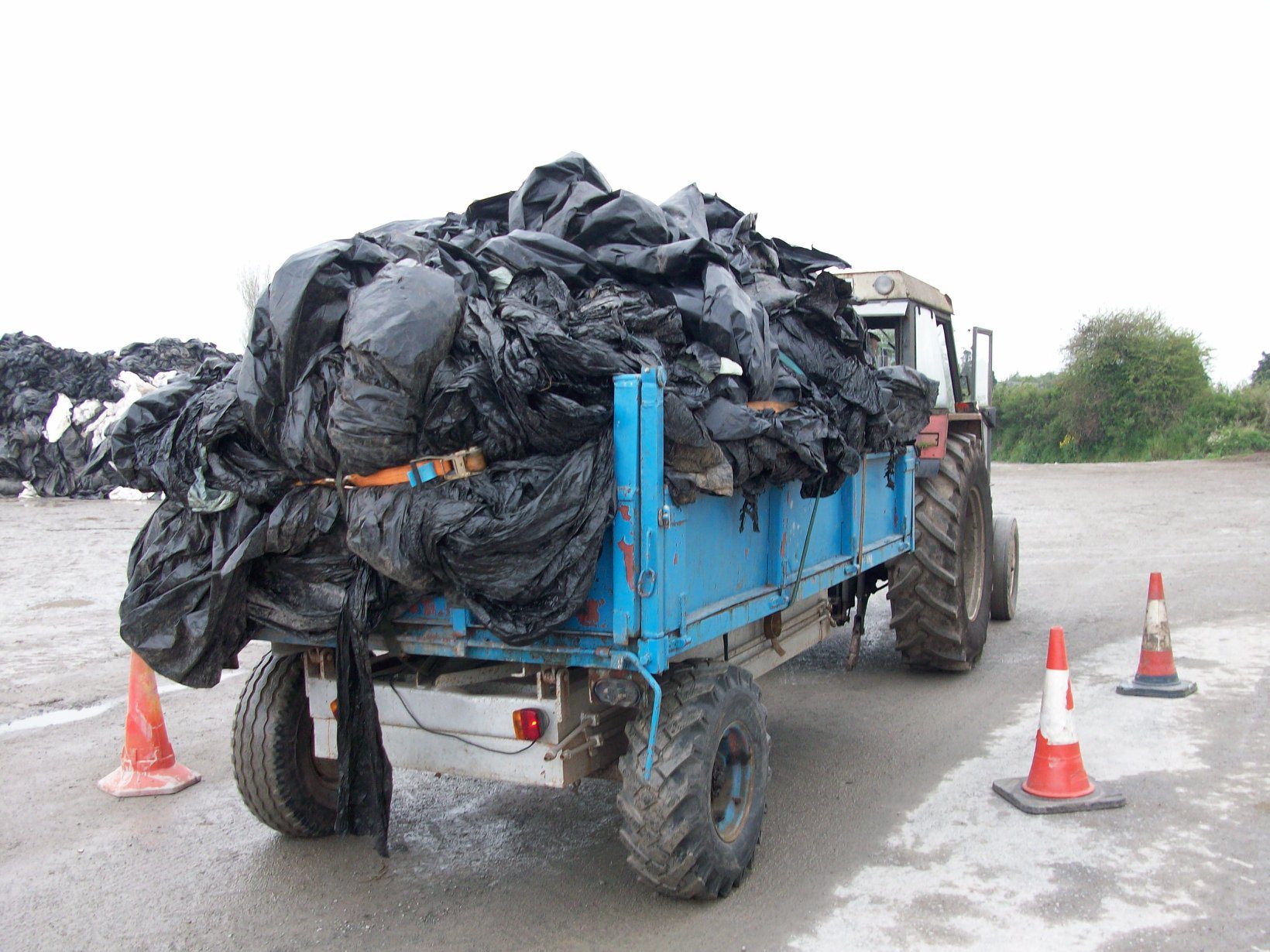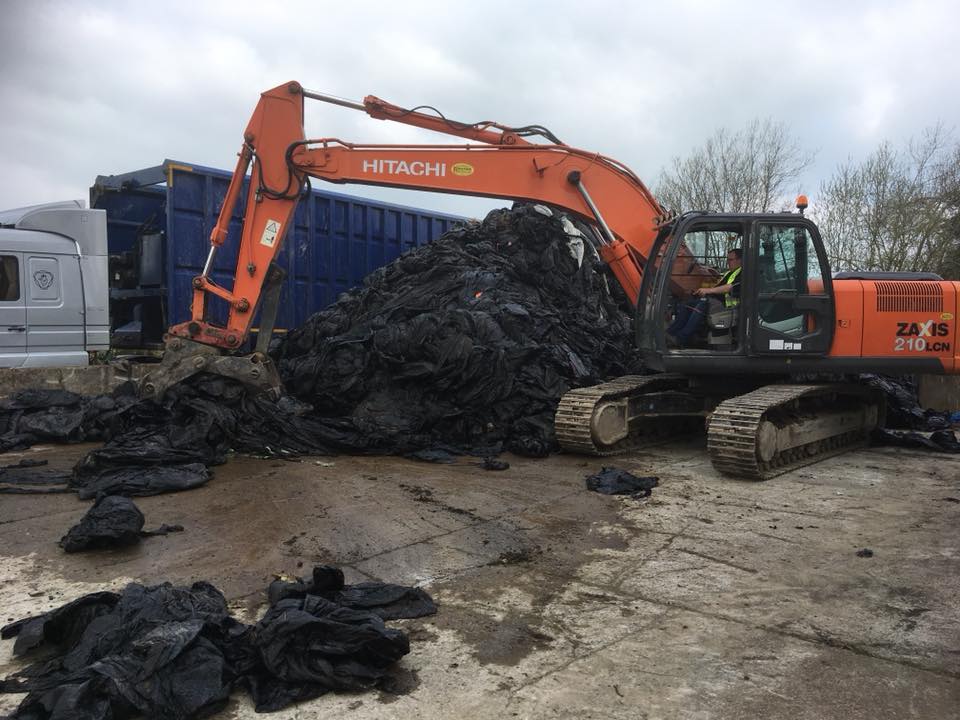IFFPG’s farm plastic bring-centres programme, whose start was delayed until the end of June due to Covid-19, has got off to a flying start with a 35% increase in collections recorded to date.
This substantial increase at early bring-centres can be attributed to a number of factors, including a long and quite severe preceding winter, the timing of this year’s bring-centres, as well as concerns among some farmers that later bring-centres may be cancelled should there be a resurgence of Covid-19.
Substantial increases
With 31 bring-centres carried out to date, there has been a substantial 35% increase in the volume of silage wrap and sheeting waste collected compared to what was collected at the same bring-centres last year.
In terms of volume, 3,897t of silage wrap and sheeting waste has been collected to date, which gives an average figure of 125t per bring-centre compared to an average of 105t per bring-centre for last year.
In addition, there have been very considerable increases in collections of netting waste and farm plastics packaging wastes (fertiliser bags, feed bags and agri-chemical drums) at early bring-centres.
In the case of netting waste, a 24% increase in the number of bags collected has been recorded; while in the case of farm plastics packaging wastes, a huge 65% increase has been recorded.
Rationale for increases
It is considered that a number of factors are contributing to the outstanding performance of the first tranche of bring-centres.
As ever, the nature of the preceding winter is a key factor. Last winter was quite long and severe and this resulted in more silage been used and therefore more plastic waste available for recycling.
It also appears that the timing of early bring-centres this year has suited many farmers in that they occurred between first and second-cut silage, thereby allowing farmers more opportunity to use their local bring-centre.
Particularly high increases for fertiliser bags and agri-chemical drums can also be attributed to the timing of early bring-centres. Since bring-centres this year are been held so much later, farmers have already used large volumes of fertiliser and agri-chemicals and are therefore bringing this year’s waste in addition to last year’s waste to the bring-centres.
Undoubtedly a big driver in the high volumes recorded at early bring-centres has been concerns by farmers that later planned bring-centres may not go ahead due to any re-emergence of Covid-19.
An analysis of early bring-centre records showed that many farmers travelled very long distances (sometimes in excess of 50km) to use an early bring-centre rather than wait for their local bring-centre later in the year.
Outlook for the remainder of the season
IFFPG considers that the outlook for the remainder of the season is very positive, with the scheme hopeful that it will be able to run its full bring-centre programme of 230 bring-centres in the period from the end of June to early October.
IFFPG is also confident that it will exceed the national recycling target of 70% (equates to 30,055t) for silage wrap and sheeting waste and as such expects it be a record year for this waste stream.
IFFPG also considers that it will be record year for the recycling of farm plastic packaging wastes largely due to the timing of bring-centres.
However, it is thought that as the season progresses that reduced volumes will be collected at bring-centres as a result of early bring-centres been so heavily subscribed to by farmers who were concerned that later bring-centres may not go ahead.
Using your local bring-centre
All the information you need to know about using your local bring-centre can be found here including its date and location, as well information on how to present farm plastics waste for recycling and the various charges that apply.
IFFPG can be contacted directly by telephone on lo call: 1890-300-444.




